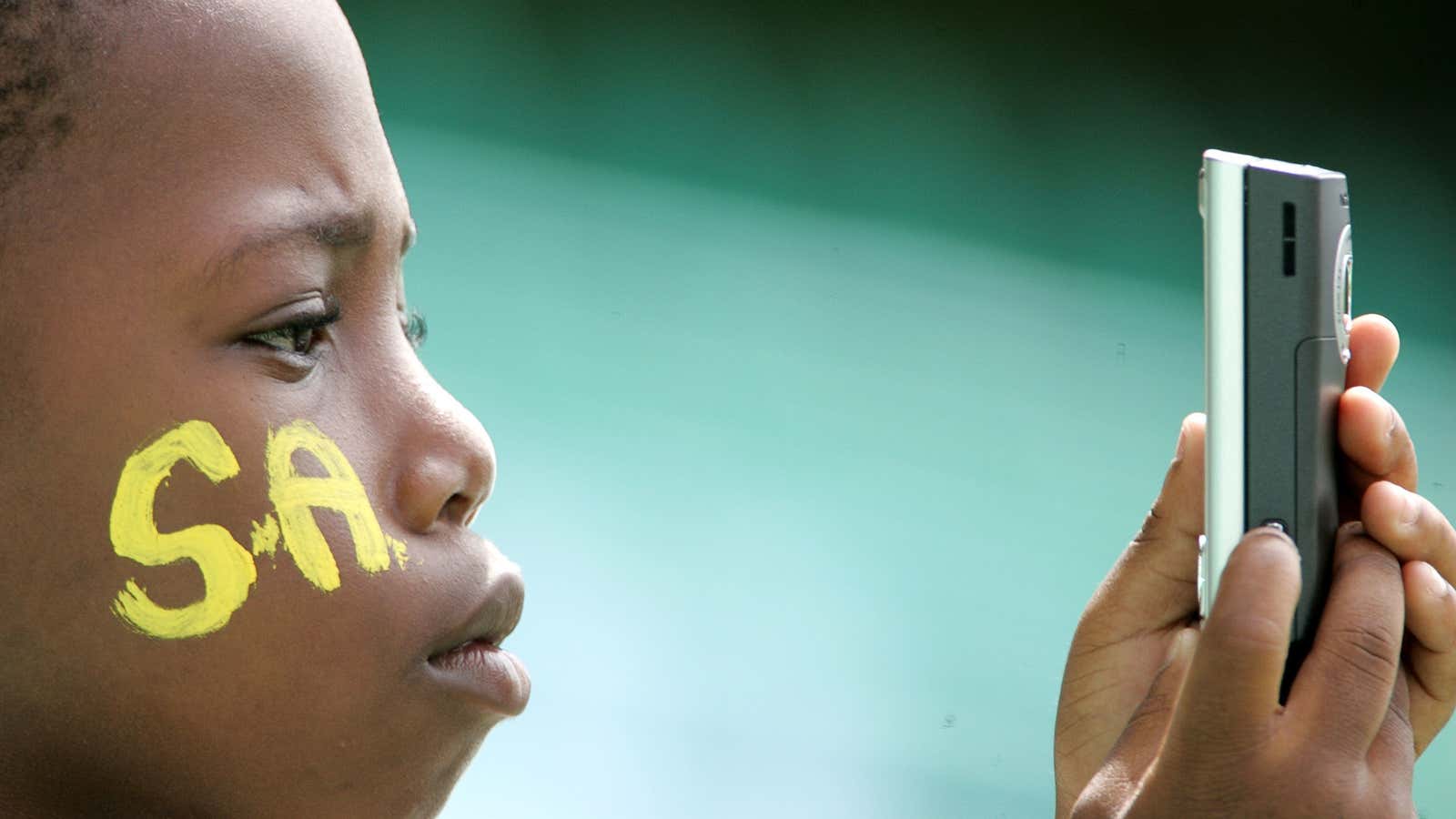Africa’s mobile phone market is now 650 million subscribers strong, reports the World Bank, which means it’s bigger than either the United States or European Union. The number of mobile phones in Africa has grown 40-fold since 2000.
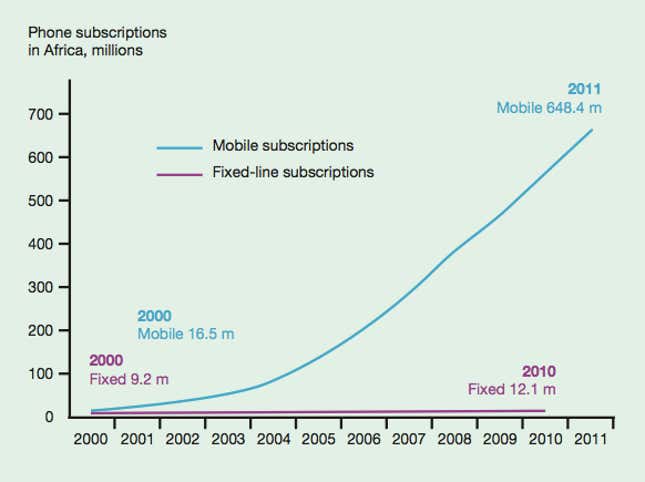
Africa’s mobile telecom market is second only to Asia in scale, and it’s growing almost as fast.
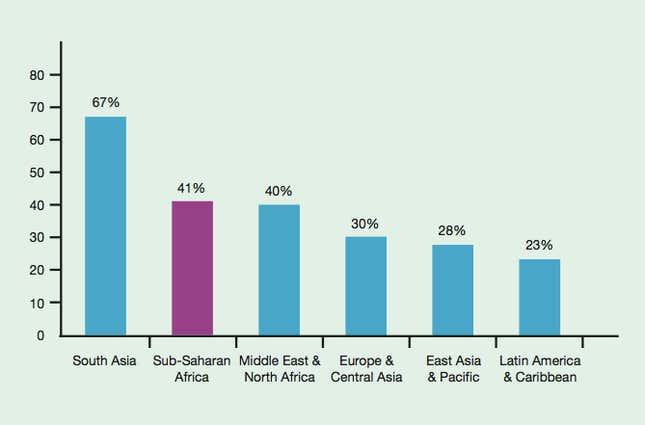
If current trends continue, in 2016, Africa’s spending on computers, software, telecoms (referred to in these charts as ICT) could be 50-80% higher than it was in 2009.
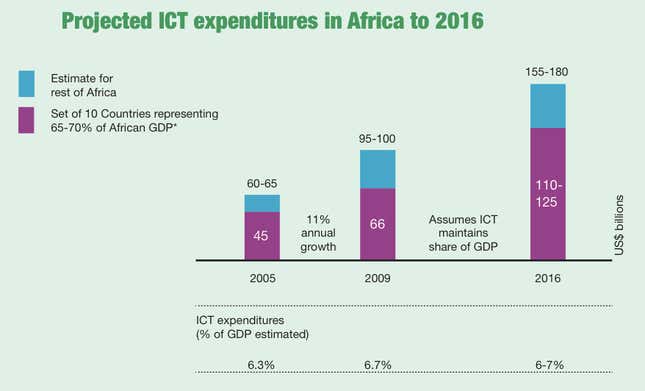
One of the reasons mobile phones are so popular in Africa is that land lines are expensive. But the rush to mobile seems to be having second-order benefits on economic development. As the World Bank notes in a recent report on information and communication technology (ICT) in Africa (PDF):
Over the previous 25 years, a 10% increase in the penetration rate of mobile phones had been associated with a 0.8% boost in GDP per capita in developing countries, while the same increase in broadband networks could add a further 1.4% to general economic growth.
What Africa is only just now experiencing is the nexus of all these trends at once, in the form of mobile devices that offer first contact with the internet but at broadband speeds. The intriguing question is: Does mobile broadband drive GDP at some multiple of separate access to mobile and broadband?
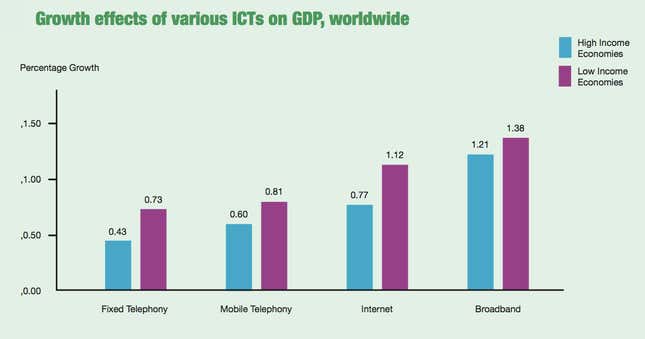
Like the rest of the world, Africa is dependent for internet access on a growing network of undersea fiber optic cables.
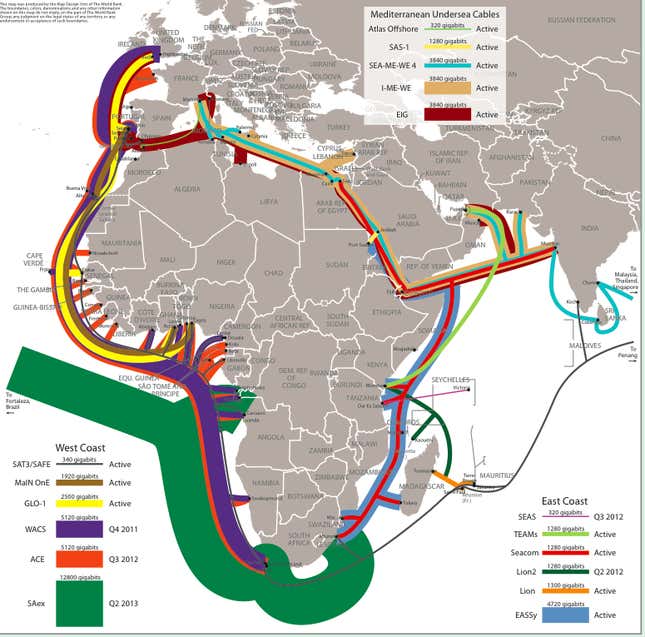
The World Bank argues that all this connectivity is bringing much-needed innovation to a continent with wide variability in the quality of its infrastructure. These developments include telemedicine in rural areas that are otherwise under-provisioned with health workers, mobile-to-mobile money-transfer services for people without bank accounts, and climate adaptation measures like crop insurance and GPS mapping for anti-deforestation measures.
